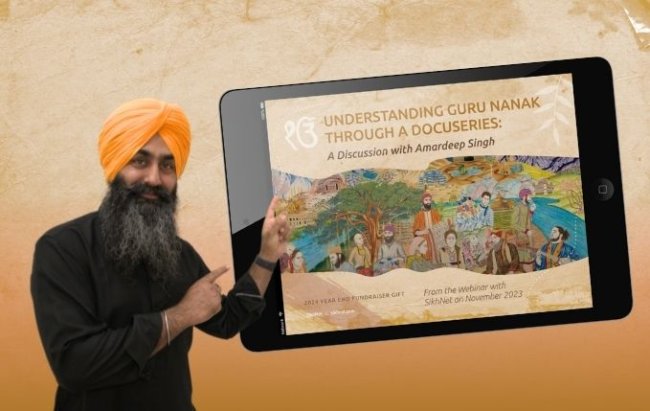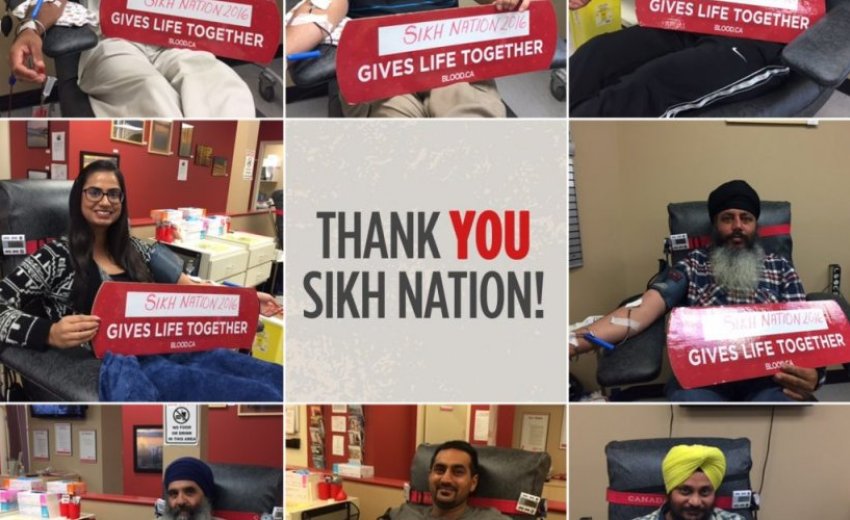Our everyday lives have been upended by uncertainty and shaped by the social-distancing norms, but through these testing times, we have also seen moments of hope and giving as we all take steps against the coronavirus spread. One such initiative is the blood drive conducted by the Vancouver-based Sikh Nation group. It has been one of the largest blood drives in Canada, and they've been setting records the whole time.
Sikh Nation lends support to the Canadian Healthcare System
The number of positive COVID-19 cases continued to rise in 2020. A lot of strain was placed on the healthcare system in Canada, and organisations like the Sikh Nation stepped up to help alleviate some of that strain. They worked with Canadian Blood Services to raise awareness of the dire situation the Canadian health care system has been in due to food shortage.
The Sikh Nation, also known as Sikh Kom, has been organising blood drives since 1999. Its origins can be traced back to the genocide that occurred in India in 1984. Every year in the month of November, members of the Sikh Nation gather together to commemorate the thousands of Sikhs who were brutally murdered in New Delhi and other cities across India during the genocide. According to the official website of the Sikh Nation, to honour the casualties, their objective has been to celebrate the victims by initiating this life-saving effort.
Blood drives by Sikh Nation
The blood drive symbolises the mission to empower and stand up against crimes and acts of violence committed against any group or individual. The Sikh Nation has organised blood drives all over Canada and the rest of the world since they opened their first clinics in the lower mainland of British Columbia. Thanks to their efforts that over 140,000 lives have been preserved.
At a time when there has been a decline in the number of blood donations as a result of regulated stay-in-home orders and the province, the Sikh Nation was also recognised by the British Columbia government. Health Minister Adrian Dix praised the Sikh community for their selfless contribution to Canada. During his press conference, which was covered by CBC, Dix made the following statement: "People in the South Asian community of the Sikh faith, who every year launch one of the biggest blood drives in Canada, are launching a new blood drive, really at the call of Dr. Henry and many others across the country, and we’re so honoured and excited by that, it’s such an important thing to do and really heartening to see.”
Volunteers’ motive behind donating blood
Volunteers who participated in the campaign saw it as a duty. It was not about recognition but about raising awareness, which made their efforts all the more laudable.
In an interview with Narcity, one of the volunteers, Jasjet Kaur said, “Our point is not really to hit like a numbers target. It is just to save as many human lives as possible. ” She also recognises the long-term impact of this work, saying, that it should be taken with an approach of a marathon, not just a sprint.
Another volunteer named Sukhdeep Singh, who has been involved with the group ever since it was founded, shared his thoughts as follows, “ If you’re doing something year after year, and the health minister recognized it, to me it’s a good gesture … obviously, it feels great. It’s part of our duty to society. We’re enjoying all the privilege, and sometimes we ignore what we’re supposed to do to the neighbourhood, the community, the country as a whole.”
As this campaign continues to promote the blood drive, it is essential to remember that blood donation is still necessary in these difficult times. Instead of arranging a mobile donation clinic, the organisation encourages donors to book their own appointments to donate due to the stringent physical distancing measures in place. It has also introduced strict cleaning procedures and stringent eligibility restrictions for blood donations.
Amid these challenging circumstances, it is heartening to see the humanitarian activities that are coming to light. The Sikh community across the world has taken some new-age approaches to fulfil the needs, whether it's about food, health or shelter.

